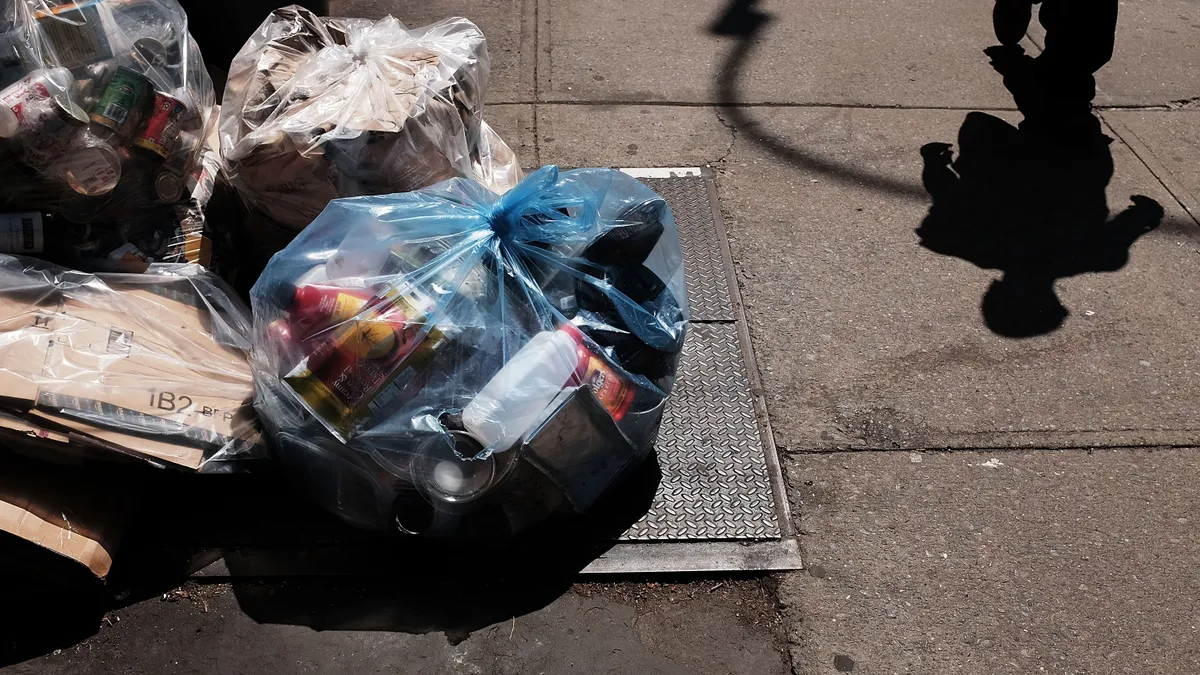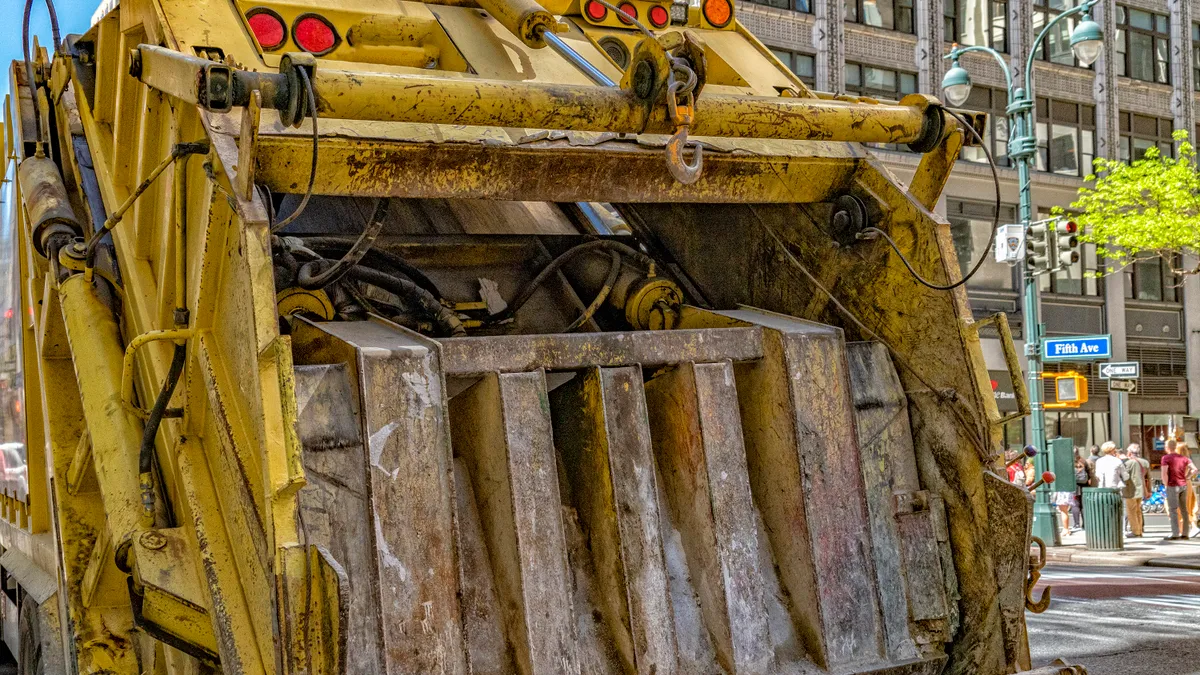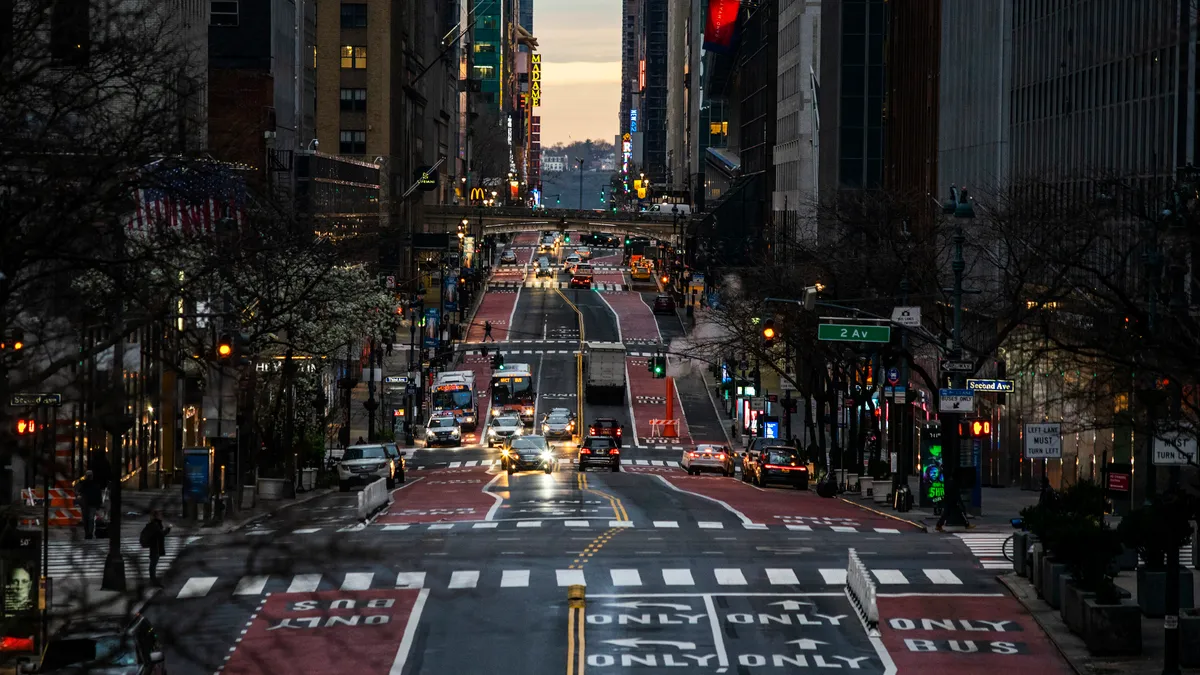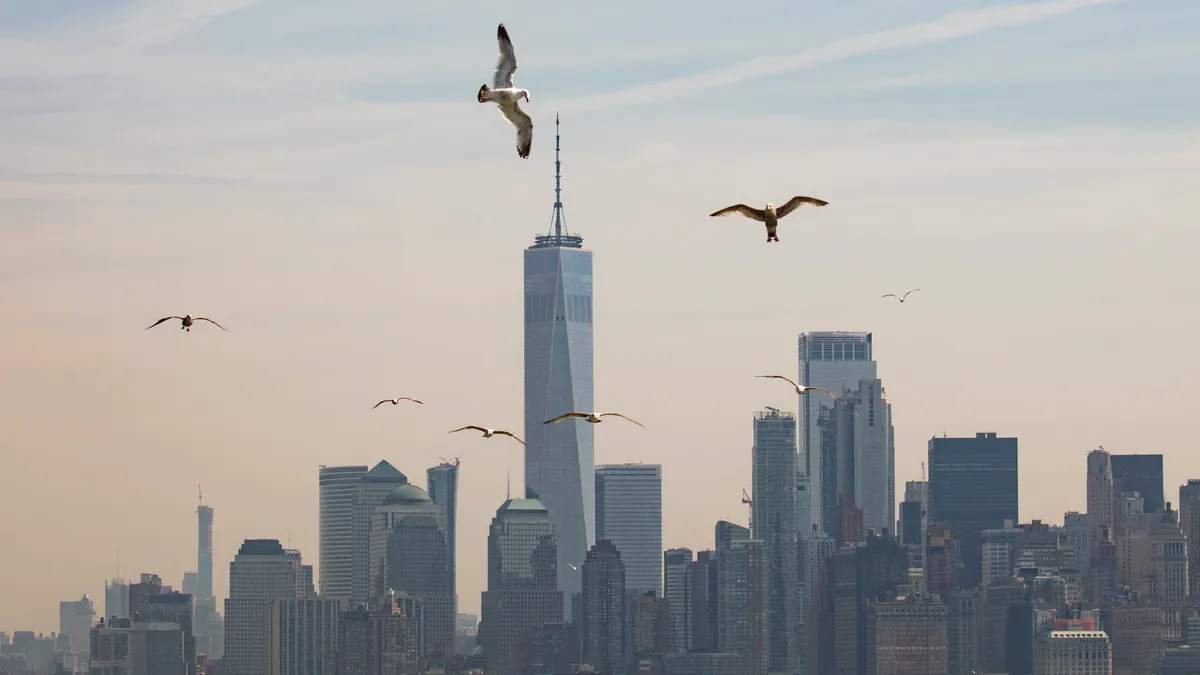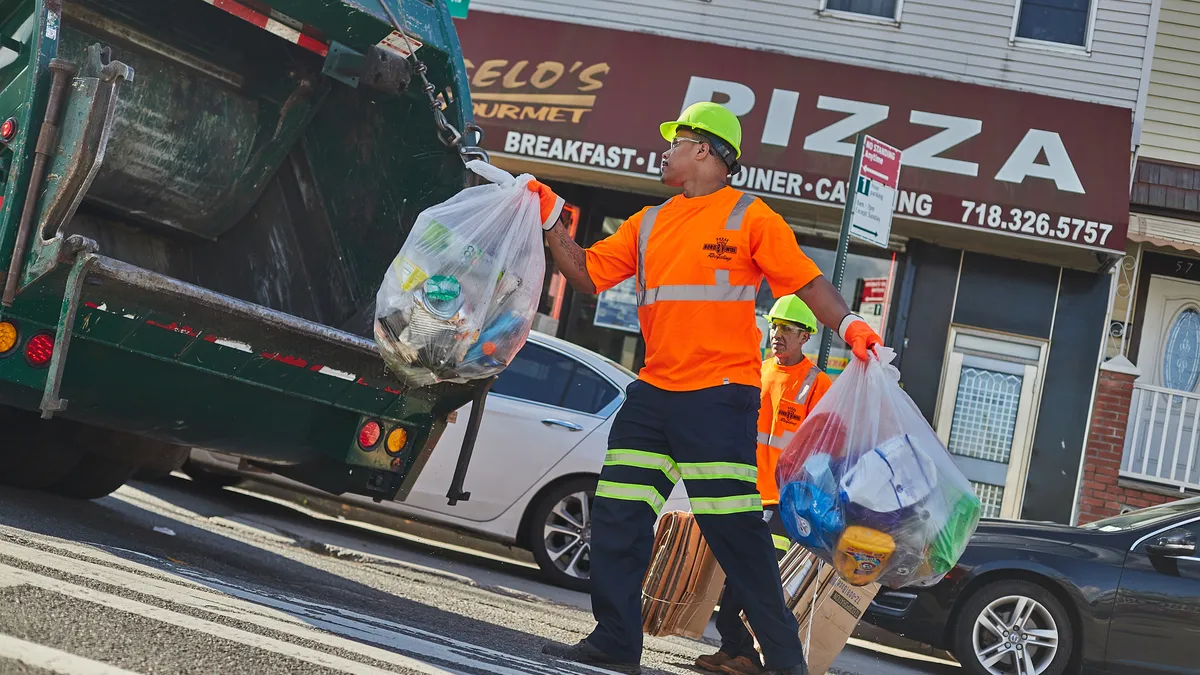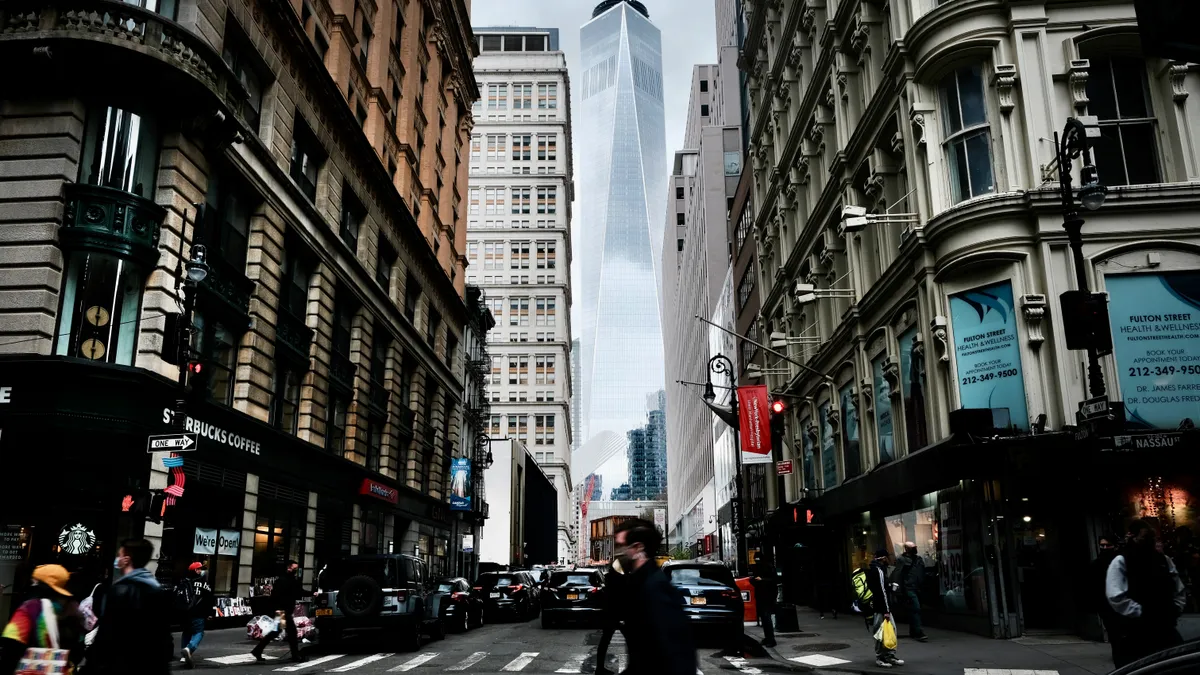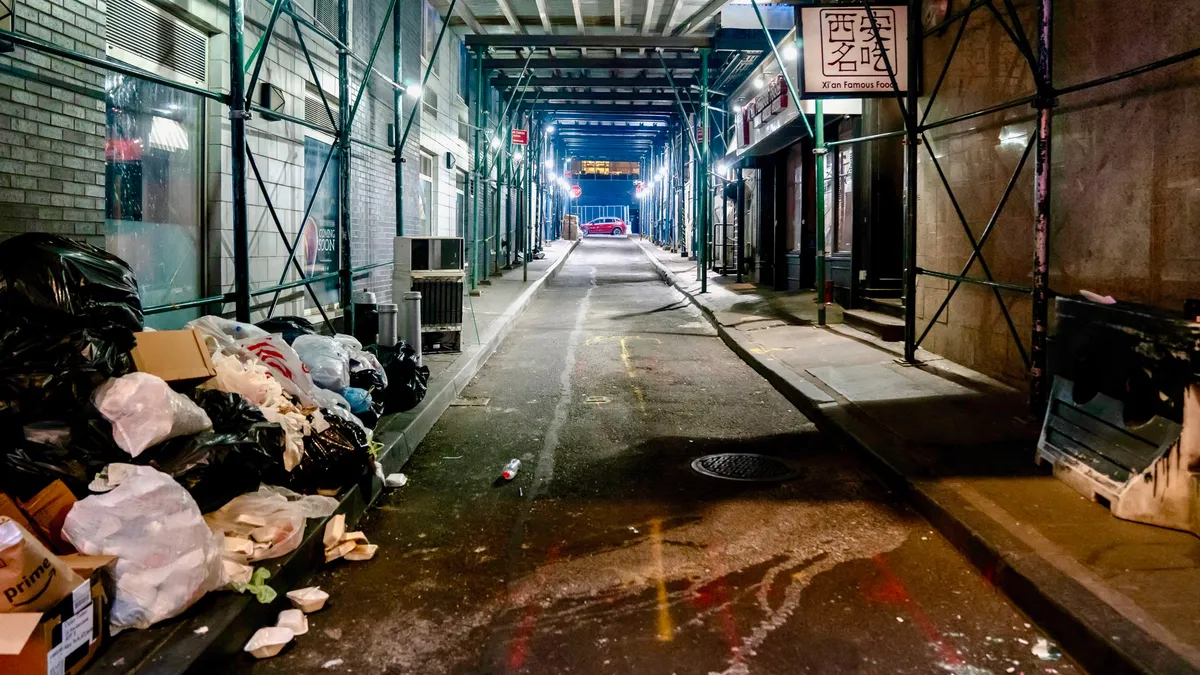Dive Brief:
- New York's Department of Sanitation (DSNY) recently disclosed 48 companies provided responsive submissions to Part I of a request for proposals to service new commercial waste zones. Those companies are now eligible to bid on Part II, with detailed service plans, when it is released in "approximately the next two months."
- Waste Management is the highest-profile newcomer, along with Winters Bros. Waste Systems based on Long Island. Almost all of market's active companies participated, including Waste Connections, Action Environmental Services (a subsidiary of Interstate Waste Systems), Cogent Waste Solutions, Royal Waste Services and others. Third-party service providers Recycle Track Systems and Rubicon also qualified.
- After DSNY experienced notable budget cuts during the pandemic, lead consultant Arcadis has returned to assist with the implementation process and additional resources are anticipated. Updated FY22 budget proposals call for $3.96 million in new commercial waste funding, followed by $5.78 million in FY23. This increase could lead to as many as 38 staff members working on implementation by the end of FY23, up from only a few currently.
Dive Insight:
This pending system, spurred by a 2019 law, will be the largest shift for the city's commercial waste market since the 1990s.
Currently, all residential waste is managed by DSNY and haulers licensed by the Business Integrity Commission operate in an open market system to collect commercial waste throughout the five boroughs. Under this new system, the city will be divided into 20 geographic zones with up to three commercial waste haulers each. Five citywide contracts will also be awarded for containerized waste service. Contracts are expected to run for 10 years, with optional extensions.
“This is a significant milestone in the department’s process for moving towards it commercial waste zone system," said David Biderman, CEO of the Solid Waste Association of North America.
DSNY's updated list does not specify whether certain companies are only planning to bid on the containerized contracts, but it ends long-running speculation about whether new players might use this opportunity to enter the market. Waste Management executives have hinted for years they were interested in potentially bidding, but that reality hasn't been publicly confirmed until now.
The company has a sizable transfer station network in the area, including export contracts with DSNY and organics pre-processing capacity, but it exited local commercial collection in the late 2000s. Action purchased some of those assets, helping it grow to become the largest force in the city's open market system. Waste Connections' 2016 acquisition of Progressive Waste Solutions helped establish its position as one of the city's other biggest players, but the current market still has a sizable number of local companies angling to maintain their market share.
Proponents have long said they hope commercial waste zones can help limit the number of active companies to those with the best environmental and safety standards, while also reducing truck traffic and making progress toward the city's zero waste goals. In reaction to the new list, one key New York group said it's too early to tell how that will play out.
“This makes me very skeptical that at this point the commercial waste zone system is doing what we hoped it would, in terms of ensuring that only the best acting waste hauling companies secure these long-term contracts with the city," said Melissa Iachan, senior supervising counsel for environmental justice at New York Lawyers for the Public Interest. "However we know that the teeth of this process will really come in phase two of the RFP and we look forward to seeing how that will hopefully narrow the competition a bit to companies willing to take the steps to improve their labor standards, safety standards, and impact on the environment."
Biderman anticipates the list will indeed narrow in Part II, given the challenges some companies had in adequately responding to the more basic Part I questions about their financial records and operating history. As part of this process, a directory of interested subcontractors for organics collection and other services is also expected to be "live on the DSNY website in the next week."
In the meantime, city staff are still working through rulemaking for multiple proposals related to customer service, safety and organics microhauling. The New York City Council's sanitation committee will also hear two related bills tomorrow. One would transfer oversight of third-party waste auditors to DSNY. The other would grant capacity increases for transfer station operators pursuing rail export capabilties, following enactment of a 2018 law to limit those operations.
Stakeholders will also be watching final results from the Democratic primary for mayor closely in the coming weeks, as implementation of commercial waste zones will fall to the next administration and former DSNY Commissioner Kathryn Garcia remains in contention.
The RFP process was delayed multiple times in the past year-plus due to the pandemic, with the process split into two parts so companies could submit basic qualifying information in Part I but wait to provide more detailed service plans. Many companies have said it may still be hard to predict the pace of economic recovery and necessary service levels when formulating bids. They will now need to balance that work with the daily challenges of servicing current customers.
“Even though this very substantial change to how commercial waste is collected in New York City is on the horizon, carters in the city are dealing with a very dynamic situation right now that they also need to focus on," Biderman said. "Waste generation is rising, as Manhattan in particular reopens. Tourism is starting to come back. So it’s going to be challenging for carters to both increase their service levels in response to customer demands while at the same time responding to Part II of the RFP."
Iachan said she's hopeful the process stays on schedule "given that we are all seeing New York City is back" following the pandemic's worst points. Biderman anticipates Part II could come as soon as August, with a possible bid meeting in September, contracts likely not awarded until 2022 and implementation ramping up into 2023.



